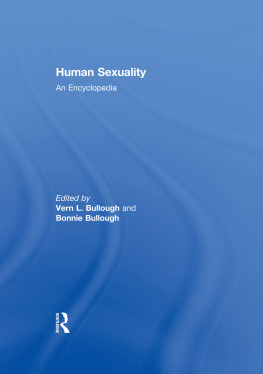Copyright 1998 D.R. Woolf
All rights reserved
Library of Congress Cataloging-in-Publication Data
A global encyclopedia of historical writing / editor, D.R. Woolf ; managing editor, Kathryn M. Brammall ; editorial assistant, Greg Bak ; advisory editors, Peter Burke [et al.].
v. cm. (Garland reference library of the humanities ; vol. 1809)
Includes bibliographical references and index.
ISBN 0815315147 (v. 1 : alk. paper)
1. Historiography. 2. Historians. I. Woolf, D. R. (Daniel R.)
II. Series.
D13.G47 1998
Cover art: Antique map, World / Seutter 1730
Cover design: Lawrence Wolfson Design, New York
K
Kagwa, Sir Apolo, (18691927)
Baganda protonationalist, prime minister (katikkiro), and writer. Kagwa was born in 1869 into a Baganda aristocratic family, and had some Western education as provided by the missions. Initiated early into politics, Kagwa rose rapidly in the royal service of King Mutesa, becoming the katikkiro in 1889. Between 1897 and 1914 Kagwa ruled Buganda as a regent and negotiated the Agreement of 1900 with Britain, which guaranteed for Buganda some degree of autonomy under colonial rule. He was knighted in 1902. Besides Kagwas profound but controversial political accomplishments, he found time to engage in historical writing. Although he wrote in Luganda (the language of the Baganda people), his works provided the first attempt at ethnohistory of a people to be done by any East African. Kagwas efforts resulted in the publication of many books, most of which have been translated into English. Out of these works, two remain very significant: The Kings of Buganda (1901) and The Customs of the Baganda (1909). While The Kings of Buganda attempted to demonstrate that the precolonial political system of the Kingdom of Buganda had already exhibited outstanding capacity for good and effective government, The Customs stressed the need to preserve the continuity as well as the self-respect of the Baganda people in an era of rapid and humiliating change occasioned by European imperialism. Based mainly on the record of the oral traditions of the kingdom and particularly events of his own time, it was clear that the purpose of these works was to legitimize the extraordinary degree of autonomy claimed by the Baganda in the Agreement of 1900 with the British. Kagwas writings, by their clarity and elegance, helped to establish Luganda as a language in which an educated elite could express complex ideas. More widely significant for historical studies in the future was the way in which Kagwas writings demonstrated that some African societies had highly complex historical memories, hitherto orally transmitted, which could form a basis of oral documents for the reconstruction of precolonial history in Africa.
Apollos O. Nwauwa
Texts
The Customs of the Baganda. Ed. May Mandelbaum Edel; trans. Ernest B. Kalibala. New York: Columbia University Press, 1934.
The Kings of Buganda. Ed. and trans. M.S.M. Kiwanuka. Nairobi: East African Publishing House, 1971.
References
Mukasa, Ham. Sir Apolo Kagwa Discovers Britain. Ed. Taban lo Liyong. London: Heinemann, 1975.
Wrigley, C.C. Apolo Kagwa: Katikkiro of Buganda. In Leadership in 19th Century Africa: Essays from Tarikh, ed. Obaro Ikime. London: Longman, 1974, 116127.
Kaizuka Shigeki (19041987)
Japanese historian of China. Born in Tokyo, Kaizuka graduated from Kyoto Imperial University before joining its affiliated Institute of Oriental Culture. He served as the director of the institute, renamed as the Research Institute of Humanistic Sciences, between 1949 and 1955, retiring from it in 1968. Kaizukas main area of interest was the ancient Shang, and he was among the first to use systematically the inscriptions on oracle bones and bronze vessels for the study of its history. Kaizuka published, in addition to a number of books on ancient Chinese history and culture, several edited collections of oracle bone inscriptions.
John Lee
Texts
Kaizuka Shigeki chosakush [Collected Works of Kaizuka Shigeki]. 10 vols. Tokyo: Ch Kron Sha, 19761978.
Kalista, Zdenk (19001982)
Czech historian, poet, and translator. A promising docent at the University of Prague in his early career, his progress was impeded by his imprisonment from 1950 to 1960 and subsequent discrimination by Communist authorities; he nevertheless managed to produce or edit over twenty books and numerous articles, some in samizdat fashion. (Samizdat was a practice of self-publishing common in Communist countries, whereby an author, denied access to regular, government-controlled presses, allowed multiple typewritten copies of his or her work to circulate in typewritten form.) In 1991, in recognition of his fortitude and his achievements, he was posthumously awarded one of the highest decorations of then Czechoslovakia by President Vclav Havel.
Kalista belonged to a group of Czech intellectuals who tried, largely successfully, to rehabilitate the baroque as a positive period in Czech culture and history, in contrast to previous writers, who had viewed it mostly negatively. The list of his major works in this field starts with a brilliant monograph on the making of a perfect baroque cavalier,
Mld Humprechta Jana ernna z Chudenic [The Youth of Humprecht Jan ernn z Chudenic] (1932); reaches its pinnacle in his panoramic overview of Czech literary baroque,
esk baroko [Czech Baroque] (1941); and ends with a passionate summation of his many insights into this phenomenon in his
Tv baroka [The Face of the Baroque] (1982), which he had to dictate to his friends owing to the loss of his eyesight in the last years of his life. A special place among his works belongs to
esk barokn gotika a jej  rsk ohnisko
rsk ohnisko [Czech Baroque Gothic and Its Focal Point in

r] (1970), a study of a unique type of Czech architecture that had tried to unite, with admirable results, Gothic and baroque structures and forms. A talented poet, he also published several volumes of poetry and numerous translations of historical and literary works from several languages.









 rsk ohnisko [Czech Baroque Gothic and Its Focal Point in
rsk ohnisko [Czech Baroque Gothic and Its Focal Point in  r] (1970), a study of a unique type of Czech architecture that had tried to unite, with admirable results, Gothic and baroque structures and forms. A talented poet, he also published several volumes of poetry and numerous translations of historical and literary works from several languages.
r] (1970), a study of a unique type of Czech architecture that had tried to unite, with admirable results, Gothic and baroque structures and forms. A talented poet, he also published several volumes of poetry and numerous translations of historical and literary works from several languages.